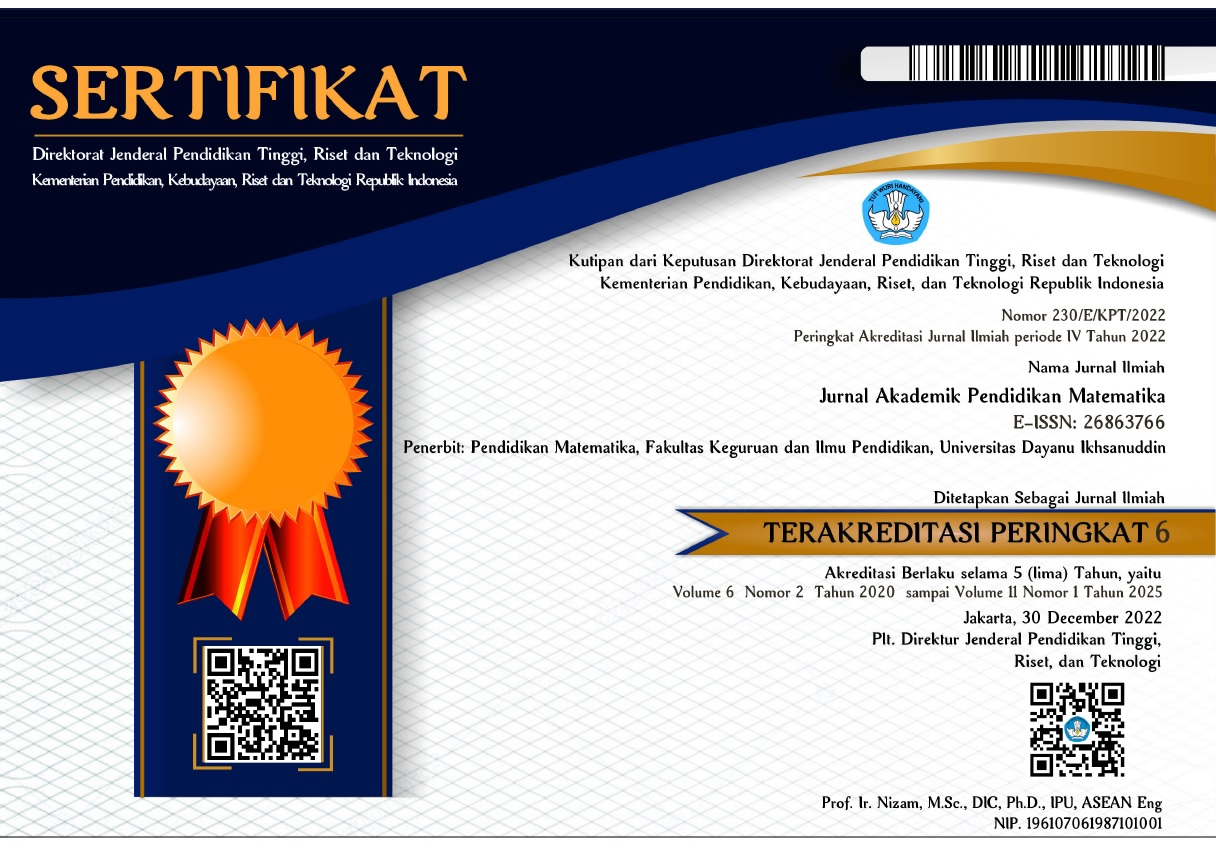Efektivitas Penggunaan Strategi Means-Ends Analisis Terhadap Kemampuan Pemecahan Masalah Matematika Siswa
DOI:
https://doi.org/10.55340/japm.v11i1.1773Keywords:
learning strategy, means-ends analysis, problem solving skillsAbstract
This study aims to determine the effect of the use of Means-Ends Analysis strategy on students' mathematical problem solving ability compared to the use of Polya's version of problem solving strategy and to determine the difference between the mathematical problem solving ability of students whose learning uses Means-Ends Analysis strategy and uses Polya's version of learning strategy. This study used a quantitative research approach with the research subjects of seventh grade students at SMPN Satap Palea. The research was conducted using instruments in the form of post-test questions, student response questionnaires. The conclusion of the research results is that there is an effect of student responses to the application of the Means-Ends Analysis learning model in a very good category, this is indicated by a percentage of 90%. While the application of the Polya version of the learning model is categorized as sufficient, this is indicated by a percentage of 73.33%. There is a difference in improving the ability of students who use the Means-Ends Analysis strategy higher than the polya version of the problem solving strategy.
Downloads
References
Azis, A. (2016). Analisis Tes Buatan Guru Bidang Studi Matematika Kelas V SD 1 Katobengke. Edumatica : Jurnal Pendidikan Matematika, 6(1), 15–24. https://doi.org/10.22437/edumatica.v6i01.2998
Azis, A., & Herianto, A. (2021). Model Pembelajaran Berbasis Proyek terhadap Peningkatan Kemampuan Memecahkan Masalah Matematika Siswa SMP. Jurnal Akademik Pendidikan Matematika. https://doi.org/10.55340/japm.v7i1.396
Becker, L. A. (2000). Effect size (ES).
Delima, N. (2011). Pembelajaran Berbasis Masalah Dalam Upaya Meningkatkan Kemampuan Pemecahan Masalah Dan Koneksi Matematis Mahasiswa Program Studi Sistem Informasi: Studi Kuasi Eksperimen pada Mahasiswa Program Studi Sistem Informasi Fakultas Ilmu Komputer Universitas Suba. Universitas Pendidikan Indonesia.
Fitriani, A. D. (2009). Peningkatan kemampuan komunikasi dan kemampuan pemecahan masalah matematis siswa smp melalui model pembelajaran means-ends analysis (studi eksperimen pada siswa kelas VIII di salah satu SMP di kota Bandung). Universitas Pendidikan Indonesia.
Hake, R. R. (1999). Analyzing change/gain scores.
Hutagalung, J. B. (2009). Meningkatkan Kemampuan Pemecahan Masalah Dan Komunikasi Matematis Siswa Sekolah Menengah Atas Melalui Pembelajaran Kooperatif Tipe Jigsaw. Universitas Pendidikan Indonesia.
Muin, A., & Permata, C. (2015). The Achievement of Mathematical Connection Skills Based on Cognitive Level Through Means Ends Analysis (Mea) Strategy of Learning.
Ruseffendi, E. T. (2005). Dasar-dasar penelitian pendidikan dan bidang non-eksakta lainnya. Tarsito.
Santoso, A. (2010). Studi deskriptif effect size penelitian-penelitian di fakultas psikologi universitas sanata dharma. Jurnal Penelitian, 14(1).
Suherman, E. (2003). Evaluasi pembelajaran matematika. Bandung: Jica UPI.
Sundayana, R. (2014). Statistika penelitian pendidikan. Bandung: Alfabeta.


























